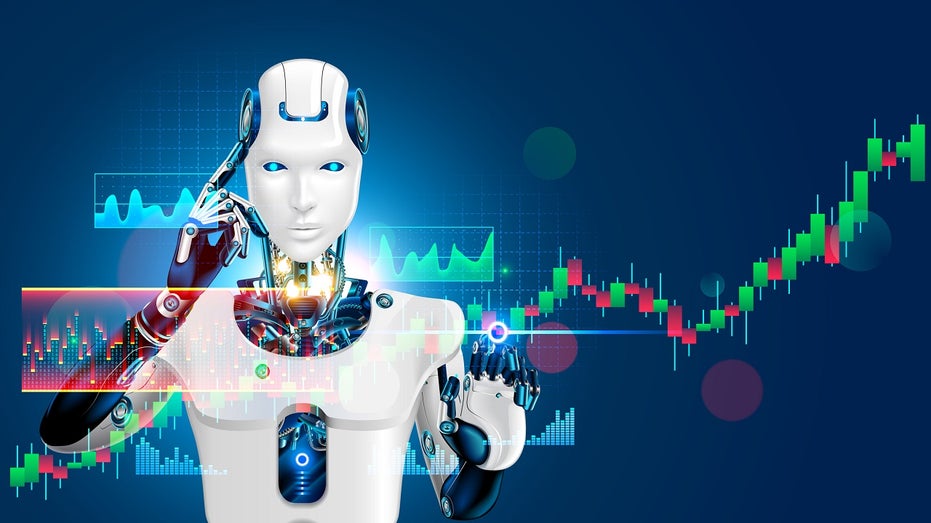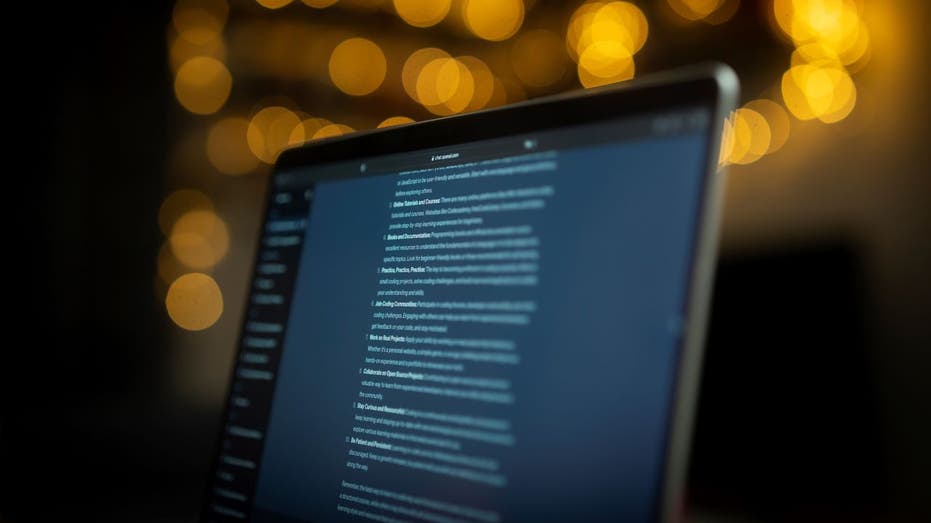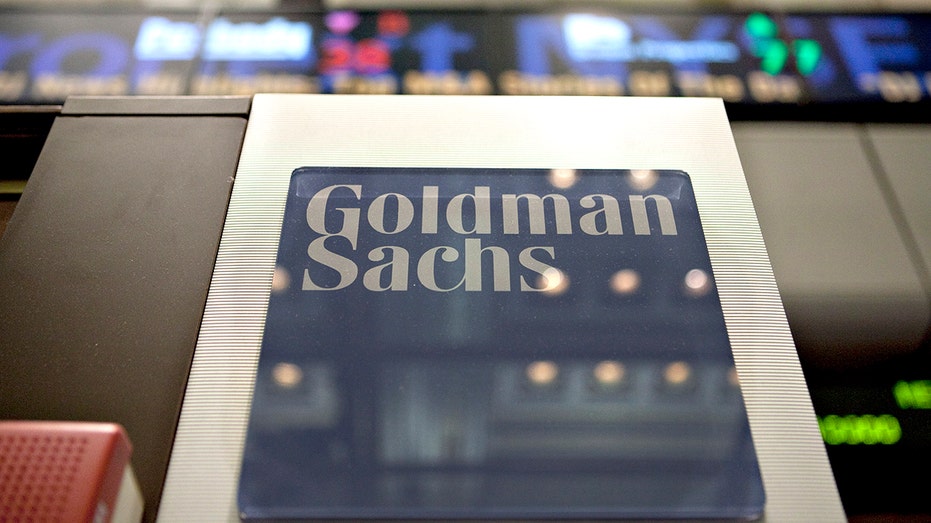AI to transform business workflows and productivity, Goldman Sachs CIO says
Companies are already expecting real gains and results from AI tools, Goldman Sachs CIO Marco Argenti tells FOX Business
How should investors think about Artificial Intelligence?
‘Barron’s Roundtable’ panelists discuss the evolution of AI and how investors can look for opportunities with the emerging technology.
The rise of generative artificial intelligence (AI) tools is poised to transform business workflows and processes, disrupting professions to boost productivity, according to one tech expert at a leading investment firm.
Marco Argenti, the chief information officer at Goldman Sachs, told FOX Business in an interview that although he went through prior hype cycles for the cloud, mobile, apps and the internet – the speed of the AI hype cycle is "probably the fastest that I’ve seen I think already even compared to a few a months ago."
"Companies have started to change their attitude toward AI a little bit in which we’re maybe through the ‘trough of disillusion’ and already in the stage in which we’re expecting and sometimes seeing practical results from that," Argenti explained. "So considering that a year ago we were probably not even talking about it, and right now we’re kind of almost full cycle through the Gartner hype cycle of phases. And I think the first thing to say is that companies including ourselves are expecting real gains and real results from AI already."
Argenti drew a distinction between AI use cases that boost or sustain productivity and help boost efficiency, versus those that are more disruptive to a given profession or field because it can accomplish tasks that humans are not capable of doing.
TWO-THIRDS OF US JOBS COULD BE EXPOSED TO AI-DRIVEN AUTOMATION: GOLDMAN SACHS

Goldman Sachs Chief Information Officer Marco Argenti told FOX Business that AI is poised to transform workflows and boost productivity. (Thiago Prudencio/SOPA Images/LightRocket via Getty Images / Getty Images)
"AI helps you do the things that you do today faster and better, versus AI helps you do things that you’re just not capable of doing as a human," Argenti said. "I’m of the camp that there’s hope for the latter as well, not just for the former because I think the empowerment and the expansion of human knowledge and also the ability to process information at the size and the level of granularity that has really never been seen before I think can be extremely helpful for businesses like ours that are all about knowledge, synthesization, extraction, decision."
As an example of how AI can enhance productivity, Argenti explained that developer productivity has been an area where Goldman Sachs has been conducting tests and pilots to see how AI can help promote efficiency, which has yielded gains of 20% to 40%.
"I think the first data point is that the profession of a developer is disrupted to the point of actually changing the profession of a developer," Argenti explained. "Meaning it kind of shifts the value add from the more of the how-to more of the why and the what."
WHAT IS ARTIFICIAL INTELLIGENCE (AI)?

AI tools can be used to analyze large quantities of market data to detect trends and sentiment. (iStock / iStock)
He went on to describe how AI tools can be used to structure business processes and workflows for things like describing various operations, generating reports, and handling inbound calls from customers in structured process languages. When AI is applied to those contexts, it expands the universe of use cases significantly.
"That’s where we see the next big opportunity," Argenti said. "A lot of attempts to do automation have failed because a lot of the automation tools are essentially big ‘if this, that, and that’ set of rules – and those break all the time because the world changes all the time."
"With [large language models] if you tried to say, ‘OK, break down this problem,’ the LLM will actually do it in real-time, it will actually create the workflow of chain of thought based on your prompt right away. It doesn’t need to be programmed, there’s no program behind it, that’s the crazy thing," he added.
| Ticker | Security | Last | Change | Change % |
|---|---|---|---|---|
| GS | THE GOLDMAN SACHS GROUP INC. | 928.44 | +39.44 | +4.44% |
GLOBAL AI INVESTMENT COULD NEAR $200 BILLION BY 2025
In the world of finance, Argenti explained that Goldman Sachs is using AI to work on how to extract assets from large data sets like corporations’ public regulatory filings by going to the essence and generating a brief for bankers to use to update clients.
It can also help extract sentiment and signals about companies from very large masses about companies, such as whether they are about to raise capital or interpreting earnings reports to make inferences.
"AI’s are really good at picking up these very, very subtle signals, and I think as a compliment to you must really able to go to the essence of things and then being presented with the tools and the background to make better choices and to give better advice to our clients, I think that could be absolutely disruptive," he said.

Goldman Sachs has used AI to boost developer productivity and analyze key points from financial reports that can be synthesized into summaries, Goldman Sachs Chief Information Officer Marco Argenti said. (Photo by Jaap Arriens/NurPhoto via Getty Images / Getty Images)
Argenti explained that one of his philosophies that is also held at many tech companies is for developers to engineer with purpose by starting with a description of the desired product capability and working backward through specs and project stories to the final development stages.
"Ironically, that is almost like prompt engineering in a way because there could be a point in which you’re just describing an application and then the AI will actually take care of the mechanics," he noted. Argenti added that over time, AI is going to transform the role that developers play in a wide variety of tasks in the product development cycle.
"We’re just at the tip of the iceberg because to me the most interesting thing is that it will expand out to the whole developer lifecycle, meaning how you test, how you deploy, how you instrument, how you alert, how you load test, how you roll back. So the whole pipeline is something that I think AI can do really well, possibly better than humans," Argenti said.
MUSK SAYS AI INDUSTRY NEEDS A ‘REFEREE,’ BUT CONGRESS IS ‘NOT YET’ READY TO CHAMPION ROLE

Goldman Sachs CIO Marco Argenti says AI could usher in a change in how people interact with a wide variety of applications. (Daniel Acker/Bloomberg via Getty Images / Getty Images)
Argenti explained that as society is seeing AI integrated into a wide variety of applications that people use every day there could be a change in consumption mechanisms because "language has always been the most natural way to interact, and yet generally you ended up with UXs and point-and-clicks for computers."
He went on to say that text-based or voice-based interactions with computers "may end up being the primary user interface." At that point, he said, there could be a change in the way users use apps from interacting with multiple apps to having an AI "assistant environment where you chat with a bunch of plug-ins instead of having an app for everything. I think that might be a possible future and that’s a big open question for me."
"I think we’re just on the verge of crossing that uncanny valley in which it feels really, really natural and not odd to talk to a computer," Argenti added. "I think it’s everybody’s experience today that the interaction with things that are GPT-like – it feels really natural, it definitely feels more natural than anything we’ve ever done with a computer before."
GET FOX BUSINESS ON THE GO BY CLICKING HERE
Argenti said that he is not a "doomsday scenario type of guy" with respect to advancements in AI because the world is very far from real artificial general intelligence and the large language models still consume significant amounts of energy and hardware so they can still be shut down. However, he did express concern about the potential role of AI in social engineering through things like voice cloning to perpetrate scams or mass manipulation of the internet and social media.
"I think this uncanny ability to process information and to generate content that is so realistic poses a threat, to me, that is the biggest threat – that is the next level of social engineering, the next level of falsification of content, the next number of threat vectors so that you can have someone that sounds exactly like you calling you and giving you wiring instructions or things of that nature," Argenti explained. "So that’s where we put a lot of thinking and effort and trying to see where the pack is going and what is the next level of threats because that is definitely something that companies should be watchful and alert for."
"And then in general, the flood of the internet and social media with content that is plausible that is auto-generated and potentially toxic, I think that is actually a threat in general so I really think that as a society we should think about how to protect ourselves and our kids," Argenti said.




















